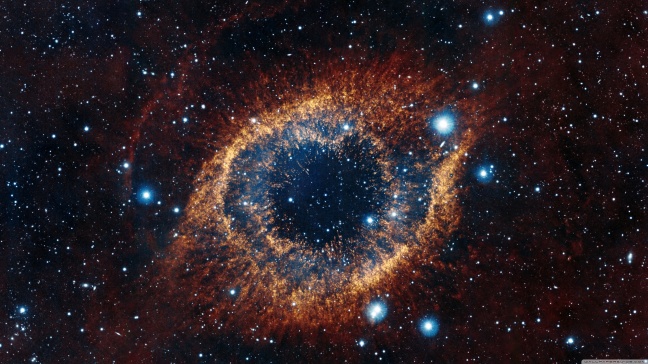June 20 is Space Exploration Day. Since we’re (oh so sadly) in something of a post-Space Age here in the United States, we’ll have to explore it using the rocketry of literature. The title of today’s post comes courtesy of Victor Hugo. Where in Hugo, I cannot say, because the Internet is peopled with crusading anti-academics, but I salute them for having curated this quote:
It seemed to be a necessary ritual that he should prepare himself for sleep by meditating under the solemnity of the night sky… a mysterious transaction between the infinity of the soul and the infinity of the universe.
At this time in the sweltering Midwest, getting outside in the evening is a necessary ritual for even the soulless, but it is generally always a good idea. Here are a few thoughts to keep you company on your nocturnal sojourns:
1. Everyone is a moon, and has a dark side which he never shows to anybody.
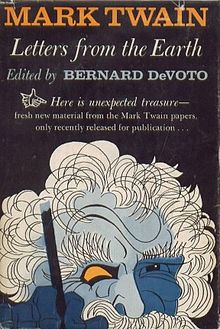 If you know Mark Twain, you likely know him for his folksy, gentle humor. If you stopped at Huck Finn or Tom Sawyer, this quote might seem like the darkest thing Twain has ever written. It’s not.
If you know Mark Twain, you likely know him for his folksy, gentle humor. If you stopped at Huck Finn or Tom Sawyer, this quote might seem like the darkest thing Twain has ever written. It’s not.
I invite you, with some trepidation, to take a tour of the dark side of Twain with Letters from the Earth. Following the death of his wife and daughter, Twain turned his pen against the author of his miseries, God. The result is a diatribe in the voice of Satan, fairly effectively damning adherents of all faiths, especially Christians. It is theologically dark, but also a sad reflection of the state of Twain’s mind just before his death. Apparently much of his grief was not the result of bereavement but of the inconveniences of age and infirmity, particularly as they affect the recreational habits of gentlemen. Some things are better left in the dark.
2. The contemplation of celestial things will make a man both speak and think more sublimely and magnificently when he descends to human affairs.
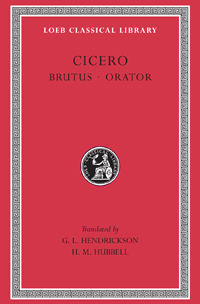
Indulge me while I relate the jubilance [here resisting the urge to insert a .wav of a giggle of delight] resulting from a recent acquisition: Some sixty volumes from the Loeb Classical Library, including this tasty bit of Cicero. Having been subjected to many years of the Latin (Ah! The perfect passive!), I can now look upon it with a joy largely absent from my first encounter. Cicero, especially, is a fondly remembered friend.
Oratory, the subject of this letter (hardly the only time Cicero treated the topic), has three aims: docere, delectare, movere—To document your thesis, to delight your audience, and to move your listeners.
Rhetoric was once an essential staple of any proper education. Along with grammar and logic, it formed the foundation for all other knowledge. Today, the collective term for these three is a derision: trivia.
Fallen, too, from so great a height is astronomy. Once the parent of all the natural sciences, it is now a hobby for those who can afford telescopes and don’t have to be at work in the morning. With the extent of urban light pollution, we’d not know there were stars at all, were it not for Neil DeGrasse Tyson (gratuitous shout-out).
Having thus documented the importance of astronomy, delighted you with the prospect of staying up well past your bedtime, we’re on to the movement: This week, I urge you to free your inner astronomer. Grab some binoculars (yes, you can see heaven with them) and a starter guide and look up. The stars have something to say to you.
3. We ran as if to meet the moon…
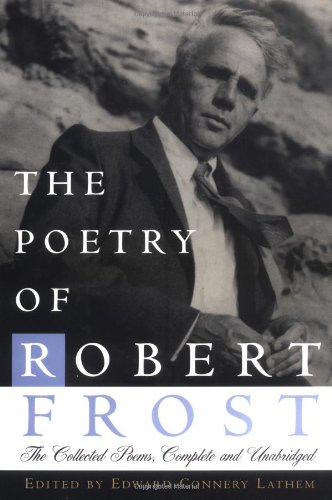 There is no good reason not to have a bit of Robert Frost ready to hand. Amazon will let you pick up used copies of his work for a penny. A penny, people!
There is no good reason not to have a bit of Robert Frost ready to hand. Amazon will let you pick up used copies of his work for a penny. A penny, people!
This line is from “Going for Water,” from Frost’s first collection, A Boy’s Will. It conveys the excitement of childhood, that idea that you really could catch the moon if you just ran fast enough. Far enough. Long enough.
On one long car journey in my childhood, I stared out the back window for hours on end, watching the moon. It must have followed me for hundreds of miles, sometimes ducking behind a hill or peeking from a stand of trees. Shakespeare being still many years in my future, I felt there could be nothing in the universe more certain, more dependable than the moon.
My parents, in the front seat, were too busy with driving, navigating, and planning to turn around and look at me. But the moon—the grand, important moon—had all the time in the world. It watched me all the way home, never fading, never blinking. 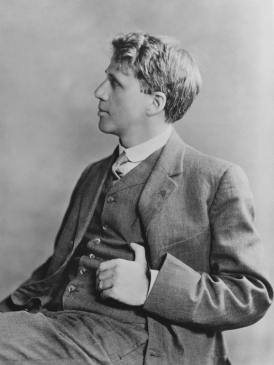
I found this photo of our young poet, taken in the year he first published A Boy’s Will. It’s hard to see the grizzled old Yankee we’ve come to love in this jaunty boy.
But that old man is in this young boy, just as the full moon is in the new, and the sunset in the sunrise.
I hope you’ll explore some space of your own today. If time and liberty are insufficient this evening, at least recite Goodnight, Moon on your way to dreamland. The moon and stars will still be there tomorrow, and forever from now. Happy reading!

